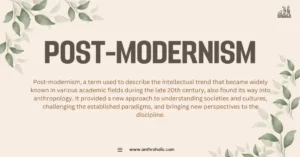AI Answer Evaluation Platform Live Now. Try Free Answer Evaluation Now
Culture Shock
Culture shock is a common experience for people who travel or move to a new country with a different culture. It can be described as a sense of disorientation and discomfort that arises from encountering unfamiliar customs, behaviors, and expectations.

According to Oberg (1960), a pioneering scholar on the topic of culture shock, the phenomenon can be broken down into several stages: the honeymoon stage, the negotiation stage, the adjustment stage, and the adaptation stage. During the honeymoon stage, individuals may feel excited and curious about the new culture, but as they begin to encounter differences and challenges, they may move into the negotiation stage, where they experience frustration, homesickness, and a sense of loss. The adjustment stage involves gradually learning to navigate the new culture, while the adaptation stage involves feeling comfortable and integrated into the new cultural environment.
Culture shock can have a variety of effects on individuals, including physical symptoms such as headaches, insomnia, and fatigue, as well as emotional symptoms such as anxiety, depression, and loneliness (Scherer, 2005). However, it can also lead to personal growth and increased cultural awareness (Winkelman, 1994).
Overall, culture shock is a complex and multifaceted experience that can have both negative and positive effects on individuals who encounter it. It is important for individuals to be prepared for the possibility of culture shock and to seek support and guidance as they navigate the challenges of adapting to a new cultural environment.
Stages of Culture Shock
Culture shock is a common experience for individuals who move or travel to a new country with a different culture. It can be a challenging and sometimes overwhelming experience that can affect an individual’s physical and emotional wellbeing. However, understanding the stages of culture shock can help individuals prepare for and navigate the challenges they may encounter. The four stages of culture shock are the honeymoon stage, the negotiation stage, the adjustment stage, and the adaptation stage. In this table, we will provide a brief overview of each stage, including its characteristics and typical experiences.
| Stage | Description |
|---|---|
| Honeymoon | Excitement and curiosity about the new culture |
| Negotiation | Frustration, homesickness, and a sense of loss as differences and challenges are encountered |
| Adjustment | Gradual learning and adaptation to the new culture |
| Adaptation | Feeling comfortable and integrated into the new cultural environment |
Note that these stages are not always experienced in a linear fashion, and some individuals may move back and forth between stages or experience them in different orders.
How to Overcome Culture Shock?
Overcoming culture shock can be a gradual and challenging process, but there are several strategies that individuals can use to help them navigate the experience. Here are some tips on how to overcome culture shock:
Educate yourself: Before traveling or moving to a new country, educate yourself about the culture, customs, and social norms of the new environment. This can help you prepare mentally for the differences you may encounter.
Seek support: It can be helpful to seek out a support system, such as other expats, local cultural organizations, or counselors, who can provide guidance and support as you adjust to the new culture.
Engage in cultural activities: Engage in cultural activities, such as attending festivals, museums, or cultural events. This can help you appreciate and understand the culture more deeply.
Practice self-care: Culture shock can be stressful, so it is important to practice self-care, such as getting enough sleep, eating well, and exercising regularly, to help you maintain physical and emotional wellbeing.
Embrace the Experience: Rather than focusing on the differences and challenges, try to embrace the experience as a unique opportunity to learn and grow. Cultivate a positive attitude and an open mind to help you adapt more easily to the new cultural environment.
By implementing these strategies, individuals can overcome culture shock and enjoy a rewarding experience of living or traveling in a new country with a different culture.
In conclusion, culture shock is a common experience for individuals who move or travel to a new country with a different culture. It can be a challenging experience that can affect an individual’s physical and emotional wellbeing, but it can also lead to personal growth and increased cultural awareness. Understanding the stages of culture shock and implementing strategies such as educating oneself, seeking support, engaging in cultural activities, practicing self-care, and embracing the experience, can help individuals overcome culture shock and navigate the challenges of adapting to a new cultural environment. By being prepared and open-minded, individuals can enjoy a fulfilling experience of living or traveling in a new country with a different culture, and ultimately emerge from the experience with a broader perspective on the world.
Scholars’ View on Culture Shock
Culture shock has been studied extensively by scholars in fields such as psychology, sociology, and anthropology. Here are a few examples of scholars’ views on culture shock:
According to Oberg (1960), a pioneer in the study of culture shock, “Culture shock is precipitated by the anxiety that results from losing all our familiar signs and symbols of social intercourse” (p. 177). Oberg identified four stages of culture shock: the honeymoon stage, the negotiation stage, the adjustment stage, and the adaptation stage.
Furnham and Bochner (1986) proposed a model of culture shock that includes six stages: honeymoon, rejection, regression, recovery, adjustment, and integration. They noted that culture shock can be experienced by anyone, regardless of age, ethnicity, or previous travel experience.
Kim (2001) argued that cultural learning, adaptation, and adjustment are key processes involved in overcoming culture shock. She proposed a model of intercultural adaptation that includes four stages: honeymoon, negotiation, adjustment, and mastery.
These scholars’ views highlight the complexity of the experience of culture shock and the importance of understanding and adapting to a new cultural environment.
FAQs about Culture Shock
Endnotes
- Furnham, A., & Bochner, S. (1986). Culture shock: Psychological reactions to unfamiliar environments. Psychology Press.
- Kim, Y. Y. (2001). Becoming intercultural: An integrative theory of communication and cross-cultural adaptation. Sage Publications.
- Oberg, K. (1960). Culture shock: Adjustment to new cultural environments. Practical Anthropology, 7, 177-182.
- Scherer, K. R. (2005). What are emotions? And how can they be measured? Social Science Information, 44(4), 695-729.
- Winkelman, M. (1994). Cultural shock and adaptation. Journal of Counseling & Development, 73(2), 121-126.




